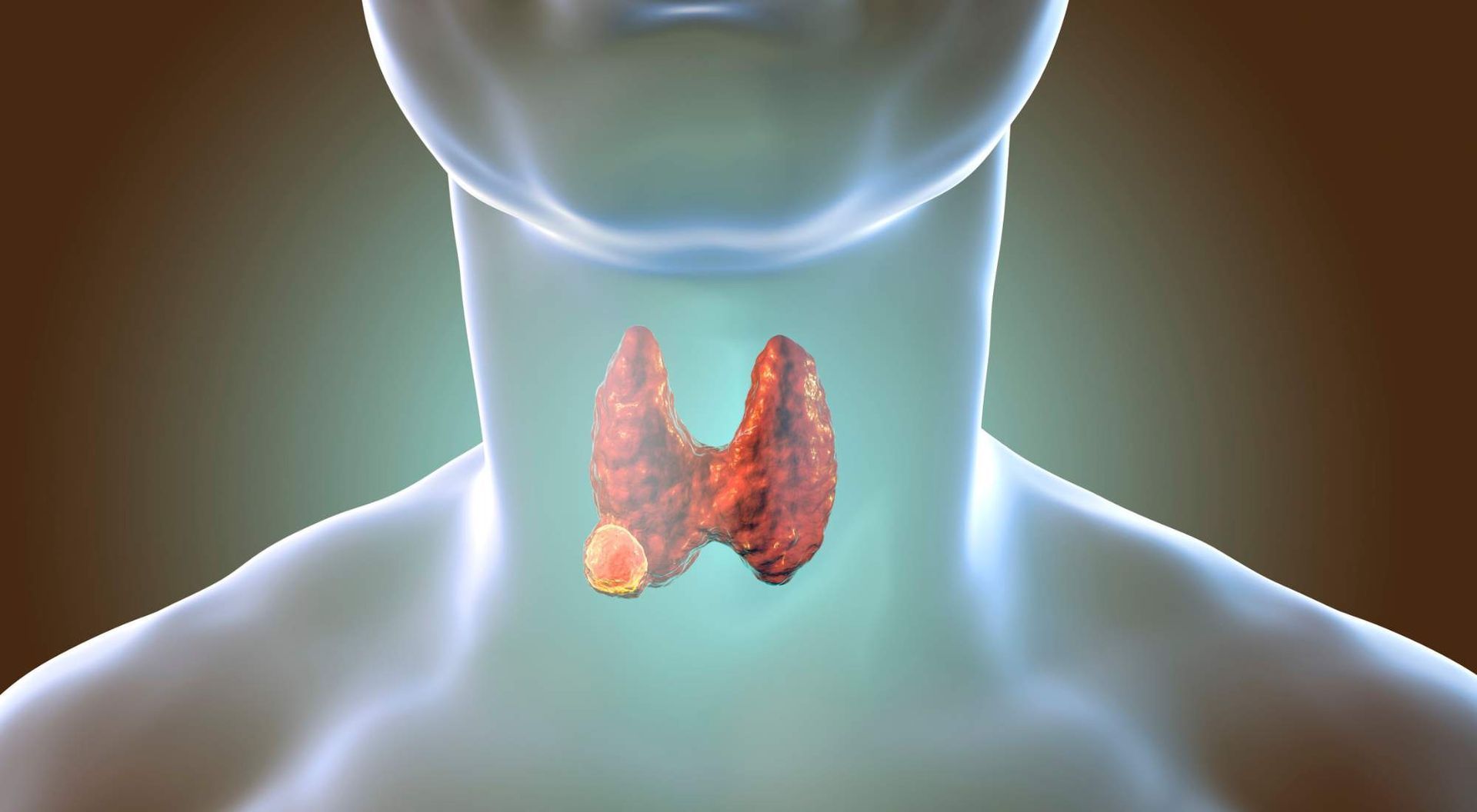Can a Thyroid Issue Cause Dizziness? How Thyroid Imbalance Can Affect Equilibrium
"The content below is not intended to be a substitute for professional medical advice, diagnosis, or treatment. Always seek the advice of your physician or other qualified health provider with any questions you may have regarding a medical condition."
Life is stressful enough without health issues coming in the way of our literal ability to walk or string a few thoughts together. For anybody who has dealt with thyroid issues, the regular occurrence of dizziness and brain fog can be a true struggle.
Fortunately, our understanding of thyroid function — and what can go wrong — has improved greatly.
While thyroid hormones have a complex set of functions in our body, with the right consultation and treatment plan we can get things under control and effectively reduce symptoms.
Let’s look at the ways thyroid issues can cause problems like dizziness and brain fog, and what kind of strategies can be used to put these symptoms in the rearview mirror.
Table of Contents
Can Thyroid Issues Cause Dizziness?
The thyroid gland is an important part of our endocrine system, releasing hormones that have various effects on our body. If these hormone levels are too low or too high it can cause a variety of problems, including dizziness.
What Is the Difference Between Dizziness, Brain Fog, and Vertigo?
Dizziness is a broad term, meaning slightly different things to different people. It is helpful to provide some key differences between dizziness, brain fog, and vertigo, as they have different associations with thyroid-related issues:
- Dizziness is typically defined as a general feeling of lightheadedness or feeling faint or unsteady.
- Vertigo is a unique sensation as it has to do with loss of balance or a feeling like things are “spinning” around you.
- Brain fog refers to your ability to think/concentrate, and can be experienced as forgetfulness, sleepiness, or inability to focus on a task or thought process.
These are some symptoms that could be experienced alone or in combination as a result of thyroid issues. Note that any of them could also be caused by issues unrelated to your thyroid. Be careful not to jump to conclusions — and treatments — without consulting with your doctor.
If you have been diagnosed with a thyroid issue, your body might need the right nutrient support to get healthy.
Hypothyroidism treatment in Brooklyn with HealthierU can consult you on whether a holistic nutrition plan is right for you.
Can Hypothyroidism Cause Dizziness and Brain Fog?
An underactive thyroid, referred to as “hypothyroidism”, can cause a slowing of the heart rate that can lead to dizziness, among other symptoms. Brain fog has also been linked to many people with hypothyroidism, although the specific causes are not well understood and are still being studied.
There are a few effects on the cardiovascular system caused by hypothyroidism. The effect on pacemaker-related genes is what directly causes a slowing of heart rate. Another effect of decreased thyroid hormones is stiffness in the arteries which results in increased blood pressure.
These kinds of symptoms impact the body’s ability to pump blood effectively, contributing to a sensation of dizziness or lightheadedness.
What Does Hypothyroid Dizziness Feel Like?
Hypothyroidism can lead to the same feelings of dizziness and lightheadedness that other people with cardiovascular issues, unrelated to thyroid activity, are also known to experience.
Too little thyroid hormone can also result in general weakness, lethargy, and sensitivity to cold.
The sleep issues that often arise, potentially due to the discomforts of other symptoms, can impact quality, restful sleep.
Can Hyperthyroidism Cause Dizziness and Brain Fog?
With thyroid hormones having a role in regulating so many physiological processes, having exceedingly high levels can, in a way, “put your body into overdrive”.
These increased metabolic processes can lead to various symptoms, such as:
- shortness of breath
- increased heart rate
- anxiety
- irritability
- night sweats
- frequent urges to urinate
A general lightheadedness can result from some of these symptoms, and mood-impacting symptoms can impact the ability to focus. Some of these symptoms can also negatively impact sleep, resulting in further fatigue and cognitive issues.
Hyperthyroidism can affect people differently, and you may start with certain symptoms and experience more symptoms over time.
What Does Hyperthyroid Dizziness Feel Like?
The various effects of hyperthyroidism can lead to one or more aspects of dizziness and brain fog, such as:
- Shortness of breath, due to its impact on lung function
- Lightheadedness due to increased heart rate
- Poor concentration due to lack of restful sleep
- Poor focus due to anxiety and irritability
Can Thyroid Issues Cause Vertigo?
Vertigo is a common symptom of hypothyroidism. This link between thyroid function and the vestibular system has been understood for several decades, although the specific cause is still being studied.
The vestibular system gives us the sensation of balance. A major part of this system is found in the inner ear. Disorders in this system can result in dizziness — specifically vertigo.
It is unclear if low thyroid hormones impact the vestibular system, or if anti-thyroid antibodies — which can attack the thyroid and reduce its functionality — are to blame.
Studies continue to help deliver the most effective treatments for vertigo symptoms.
What Does Dizziness Caused By Vertigo Feel Like?
Vertigo is a specific type of dizziness that can be quite unsettling and debilitating. It is not the same thing as being lightheaded or unsteady.
The most prevalent symptom of vertigo is a feeling like the room is “spinning”. This can make you feel nauseous or can cause problems with walking as you are unable to keep a proper balance.
When To See Your Healthcare Practitioner for Dizziness Caused By Thyroid Issues
If you are experiencing sudden, recurring, or persistent dizziness, or if the dizziness is severe, you should see your doctor. They will need to perform/request tests to understand the root cause — many causes of dizziness are not thyroid-related.
Additionally, if you are experiencing any of the many other symptoms of a thyroid disorder then you should see a doctor. If your thyroid hormones are out of balance you may find further down the road you end up experiencing additional symptoms such as dizziness.
As with many illnesses, early detection and treatment can help with the effectiveness of the treatment and management or reversal of symptoms.
3 Treatment Options for Dizziness Caused By Thyroid Issues
There are multiple treatment options to address thyroid issues and the many symptoms, such as dizziness, that patients suffer from.
Surgery is an option (specifically for hyperthyroidism), but as with many surgical procedures, there are risks of complications.
The best way to treat thyroid issues is to attempt to balance hormone levels. There are several ways this can be achieved, done separately or in combination, depending on the patient’s needs and preferences.
#1: Medication
For hypothyroidism, the goal is to increase the levels of hormones in the body.
- Levothyroxine is a synthetic version of thyroxine (the thyroid hormone commonly called “T4”) and is the most common treatment for hypothyroidism.
- An ongoing daily dose of levothyroxine acts like T4 in the body, although it can take four to eight weeks to improve your symptoms.
For hyperthyroidism, we want to reduce the amount of hormones secreted by the thyroid.
- There are some pharmaceuticals, namely methimazole and propylthiouracil, that gradually bring your thyroid hormone production back to normal levels.
- A treatment regimen typically lasts 12 to 18 months, after which dosage is reduced or stopped. This often results in long-term remission, but symptoms return for some people.
- An alternate medication involves the ingestion of small amounts of radioactive iodine.
- When radioiodine is absorbed by the thyroid it causes cells to die, reducing overall thyroid activity. Symptoms typically lessen after a few months.
- This treatment usually ends up creating a state of hypothyroidism. Ongoing treatment would be required to keep hormone levels up.
#2: Supplements
Even with a well-balanced diet, certain supplements can help boost your thyroid health. Here are a few examples of supplements that, among other positive effects, can help with your thyroid health:
- Selenium is known to give great support for your thyroid. It is a mineral needed for thyroid hormone production.
- Zinc is another mineral required for thyroid hormone production. Zinc supplementation has other benefits including boosting your immune system and metabolism.
- Magnesium and iron are two minerals involved in converting T4 into the active hormone T3. Supplementing with these minerals can help optimize your T3 levels.
- Vitamin B12 is often found to be deficient in patients with thyroid issues, and supplementation may be helpful. Overall, the B vitamins are all known for contributing to various cellular functions and helping with overall energy levels.
- Ashwagandha root extract is a traditional natural medicine that has been shown to increase T3/T4 levels. This effect can help with hypothyroidism but could be problematic for those with hyperthyroidism.
Iodine is another key ingredient in thyroid hormone production, but it is best to consult your doctor before considering an iodine supplement. If you are not experiencing a lack of iodine, then supplementing it
could cause more harm to your thyroid.
#3: Holistic Nutrition
Some pharmaceutical treatments are temporary or can bring side effects, all while not addressing the underlying root cause of the problem.
Taking a holistic approach to your thyroid health can give your body the support it needs.
Immune system support, inflammation reduction, and supporting your thyroid functions are some areas where holistic nutrition can improve your health and naturally reduce your thyroid-related symptoms.
Dr. Sergi at HealthierU can guide you on your healing journey, as she has done for many other clients with
thyroid issues causing dizziness or any of the other symptoms that can occur.
HealthierU: Helping Manage Thyroid Symptoms Through Holistic Nutrition
Our thyroid is such an integral organ, as its hormones play key roles throughout our body. Thyroid health is truly the key to whole-body health, and a natural approach can sometimes be the best way forward for your needs.
The dizziness and loss of balance that you are experiencing? It could be the cause of key nutrients that are out of balance. HealthierU can help shed some light on the situation and create the right plan for you.
The holistic approach at
HealthierU can help you
naturally manage your thyroid symptoms, giving you confidence in what you are putting in your body. Contact us today to get started.






